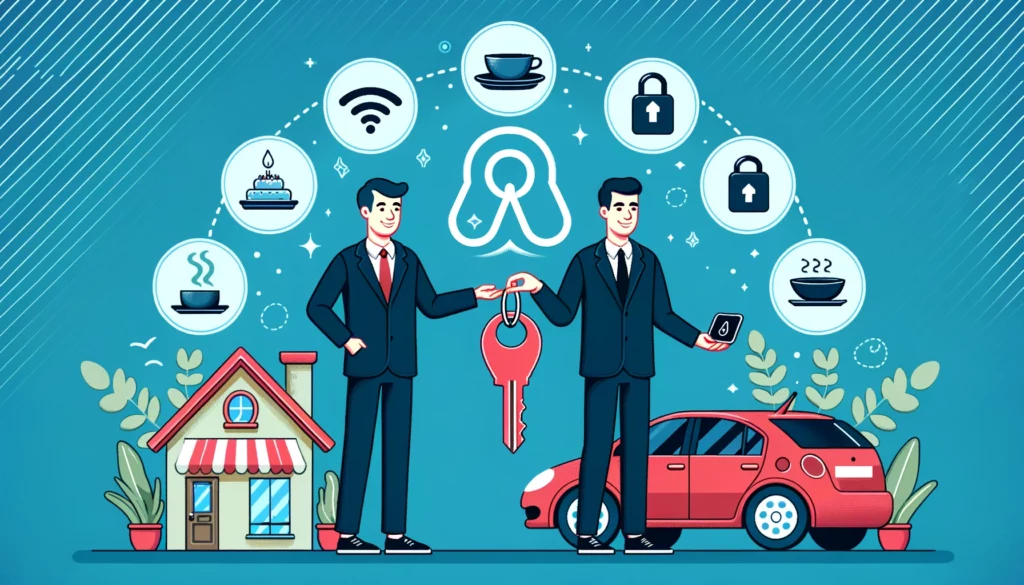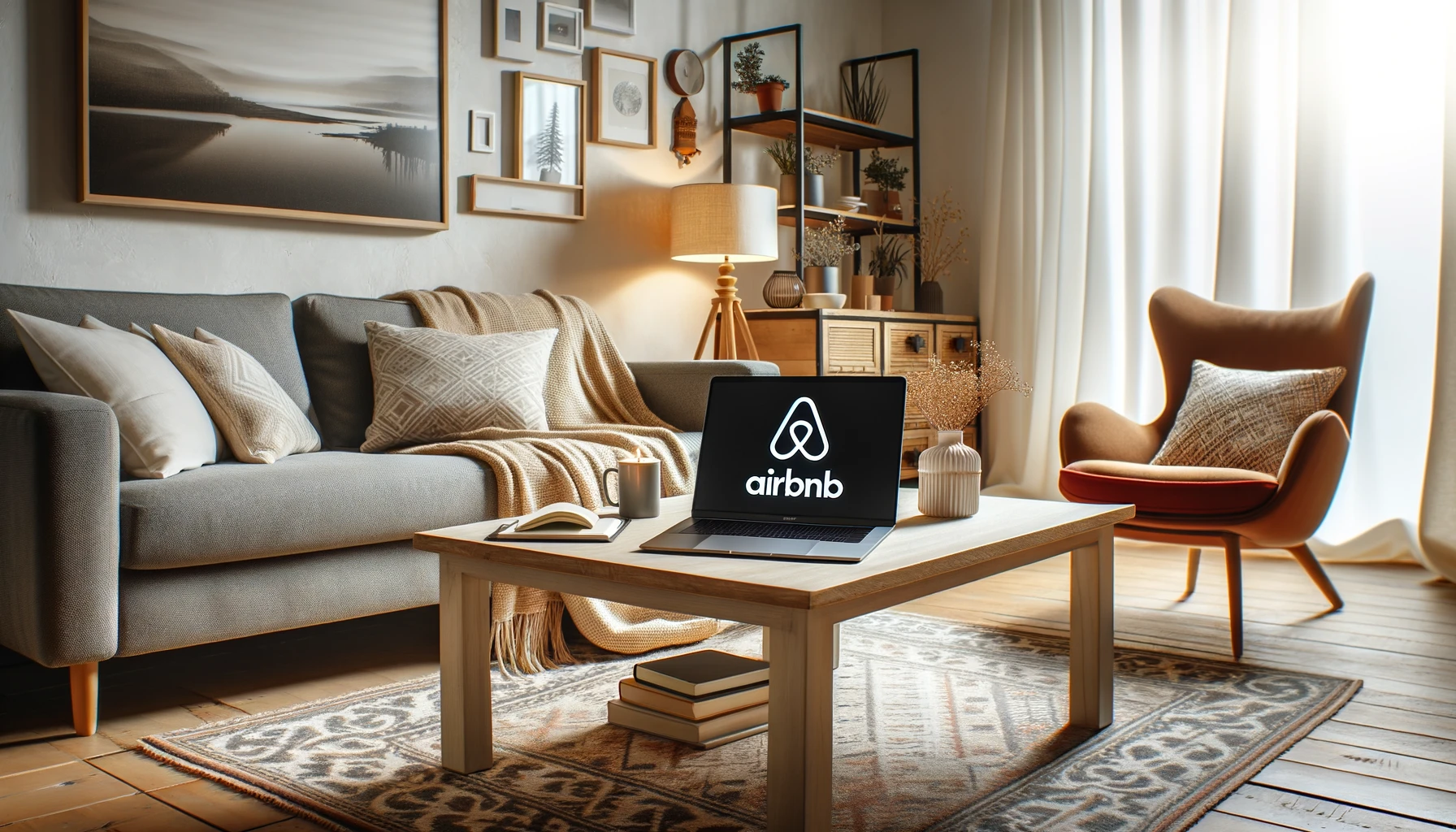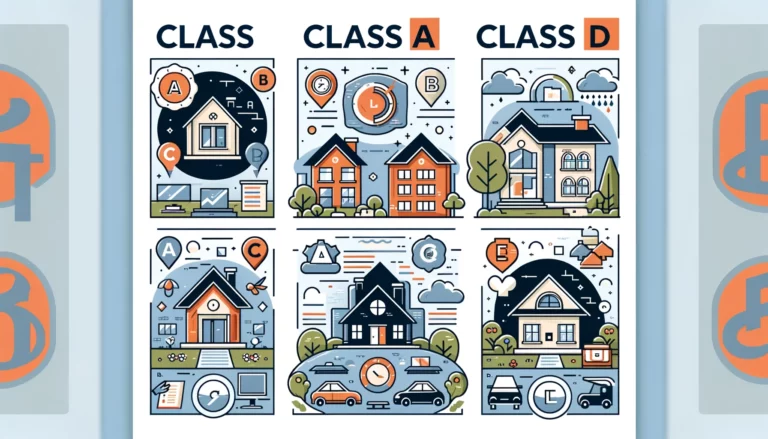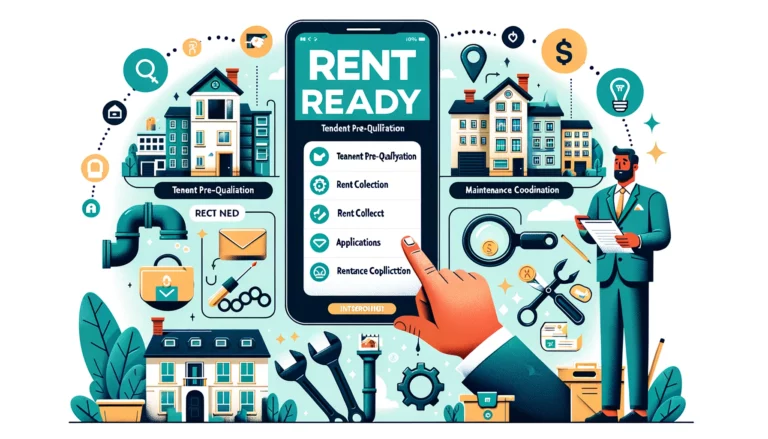Airbnb Property Management: Navigating the Short-Term Rental Market
Hey There, Vacation Hosts!
Welcome to the bustling world of Airbnb hosting…
In this ever-evolving space, managing my properties efficiently has made a world of difference, both in my guests’ experiences and my success as a host.
As we dive into the nuances of short-term rental property management, I’ll share how I’ve streamlined my operations, enhanced guest satisfaction, and maximized rental income.
Get ready to transform your Airbnb hosting game with the practical insights and expert tips I’ve gathered along the way!
Airbnb Property Management: More Than Just Listings
Airbnb Property Management is the specialized field that bridges the gap between property owners and Airbnb guests.
It’s not just about listing a property on Airbnb and waiting for bookings to roll in; it’s a comprehensive approach that involves various tasks such as property maintenance, guest communication, and financial management.
The aim is to optimize the rental process, ensuring that property owners can maximize their profits while providing guests with an exceptional experience.
In essence, Airbnb Property Management takes the hassle out of short-term rentals for property owners.
It covers everything from setting up the listing with eye-catching photos and compelling descriptions to handling guest inquiries and reviews.
With the right property management, you can turn your property into a profitable venture without having to deal with the day-to-day operations.
How Much Does Airbnb Property Management Help?
Airbnb Property Management is a multi-faceted operation that begins even before a property is listed on Airbnb.
First, a property assessment is usually conducted to determine the rental value and any improvements that may be needed.
Once the property is ready, professional photographs are taken, and a compelling listing is created to attract potential guests.
But the work doesn’t stop there…
Property managers handle all guest communications, from initial inquiries to check-out reviews. They are also responsible for ensuring that the property is clean, well-maintained, and fully stocked with essential amenities.
In many cases, they’ll manage the pricing strategy as well, adjusting rates based on seasonality, local events, or market demand.

Explore our Las Vegas Event Guide to Boost Your Rental Earnings
Click here for details.
Financial management is another crucial aspect. This includes tracking earnings, managing expenses, and ensuring that all financial transactions are transparent and straightforward.
In essence, Airbnb Property Management is a full-service solution designed to make short-term rentals as hassle-free and profitable as possible for property owners.
Are There Common Misconceptions About Airbnb Property Management?
Yes, there are several misconceptions that people often have about Airbnb Property Management.
One common myth is that it’s a “set it and forget it” type of business.
Many people think that once the property is listed, the bookings and money will just start flowing in.
In reality, effective property management requires ongoing effort, from updating listings and communicating with guests to regular maintenance and cleaning.
Another misconception is that Airbnb Property Management is only for those with multiple properties.
In fact, even single-property owners can benefit immensely from professional management, as it can help optimize rental income and guest satisfaction while reducing the owner’s workload.
Some also believe that property management services are too expensive and eat into the profits. While there is a cost involved, the value-added services like optimized pricing, professional photography, and 24/7 guest support often result in higher overall earnings that can offset the management fees.
Lastly, there’s a notion that Airbnb Property Management is the same as traditional property management.
Although there are similarities, the short-term nature of Airbnb rentals presents unique challenges and opportunities that require specialized expertise.

What Are the Benefits of Airbnb Property Management?
Airbnb Property Management offers a multitude of advantages that make it a worthwhile investment for property owners. One of the most significant benefits is the potential for increased revenue. A skilled property manager knows how to optimize pricing strategies, ensuring that you’re getting the most out of your property, especially during peak seasons or special events.
Another advantage is time-saving. Managing a short-term rental property can be time-consuming, from handling guest inquiries and bookings to dealing with maintenance and cleaning. A property manager takes care of all these tasks, freeing up your time for other pursuits.
Quality control is another benefit. Property managers ensure that your listing is presented in the best possible light, with professional photos and compelling descriptions. They also maintain high standards of cleanliness and amenities, which can lead to better reviews and, consequently, more bookings.
Peace of mind is an often-overlooked benefit. Knowing that a professional is taking care of your property and guests can relieve a lot of stress. This is especially valuable if you’re not located near the rental property and can’t manage things in person.
Lastly, property managers often have valuable local knowledge and connections, from reliable cleaning services to local regulations and tax obligations. This expertise can help you navigate the complexities of the short-term rental market more effectively.
What Challenges Do Airbnb Property Managers Face?
Managing an Airbnb property is not without its challenges. One of the most pressing issues is the constant need for maintenance and upkeep.
Unlike long-term rentals, short-term properties experience a higher turnover of guests, which can result in more wear and tear. This requires frequent inspections and timely repairs to maintain the property’s appeal.
Another challenge is managing guest expectations. In the age of online reviews, even a single negative experience can significantly impact future bookings.
Property managers must be adept at customer service, addressing any issues promptly and professionally to ensure guest satisfaction.
Pricing is also a complex issue. Setting the right price for your property involves a delicate balance. Price it too high, and you risk low occupancy; too low, and you may not cover your costs or make a profit.
Property managers often use dynamic pricing tools, but even then, it’s an ongoing challenge to adapt to market conditions.
Legal and regulatory compliance is another hurdle. Local laws regarding short-term rentals can vary widely, and it’s the property manager’s responsibility to ensure that the property complies with all local, state, and federal regulations. This may include zoning laws, safety standards, and tax obligations.
Lastly, the challenge of scalability exists for those managing multiple properties. As the number of properties increases, so does the complexity of tasks like key management, cleaning schedules, and financial tracking. Effective systems and software are essential for managing this complexity.
Table: Comparing Airbnb Property Management to Traditional Rentals
| Aspect | Airbnb Property Management | Traditional Rentals |
|---|---|---|
| Rental Duration | Short-term (days to weeks) | Long-term (months to years) |
| Revenue Potential | Higher due to dynamic pricing | Fixed, based on lease terms |
| Maintenance Frequency | Frequent due to high turnover | Less frequent, based on lease |
| Guest/ Tenant Interaction | High, constant communication needed | Low, mostly at lease renewal or issues |
| Legal Requirements | Vary by location, often more stringent | Generally standardized, less complex |
| Pricing Flexibility | Dynamic, can change daily | Fixed, based on lease agreement |
| Customer Service | Immediate and ongoing | As needed, less frequent |
| Property Wear and Tear | Higher due to frequent guest turnover | Lower due to longer tenancy |
| Marketing Efforts | Continuous to maintain occupancy | Primarily at lease end or vacancy |
| Financial Management | Complex due to variable earnings | Simplified due to fixed income |
What Can We Learn from the Table Data?
The table provides valuable insights into the fundamental differences between Airbnb Property Management and Traditional Rentals.
One of the most striking contrasts is in the rental duration. Airbnb rentals are generally short-term, leading to higher maintenance needs due to frequent guest turnover. On the flip side, this allows for dynamic pricing, which can significantly boost revenue potential.
Another key takeaway is the level of interaction required with guests or tenants. Airbnb Property Management demands constant communication to ensure guest satisfaction, whereas traditional rentals require far less ongoing interaction. This could be a deciding factor for property owners who prefer a more hands-off approach.
Legal requirements also differ substantially. Airbnb Property Management often faces more stringent and variable regulations, making compliance a more complex task compared to the generally standardized legal landscape of traditional rentals.
The table also highlights the difference in financial management complexity. The variable earnings in Airbnb rentals require a more nuanced approach to financial tracking and reporting, unlike the fixed income stream in traditional rentals.
Lastly, the table underscores the importance of customer service in Airbnb Property Management. The need for immediate and ongoing service is much higher compared to traditional rentals, where interactions are less frequent and usually issue-based.
What Are Practical Tips for Successful Airbnb Property Management?
Success in Airbnb Property Management is often the result of meticulous planning and execution. Here are some practical tips to help you navigate this challenging yet rewarding field:
- Optimize Your Listing: Use high-quality photos and write compelling descriptions to make your property stand out. Make sure to highlight unique features and amenities.
- Dynamic Pricing: Utilize dynamic pricing tools to adjust your rates based on demand, seasonality, and local events. This can help maximize your revenue.
- Automate Where Possible: Use property management software to automate tasks like bookings, guest communication, and financial reporting. This can save you a significant amount of time.
- Be Proactive with Maintenance: Regular inspections and timely repairs can go a long way in maintaining the quality of your property. A well-maintained property is more likely to receive positive reviews.
- Excellent Customer Service: Always be available for your guests. Quick responses to queries and resolving issues promptly can greatly enhance guest satisfaction.
- Legal Compliance: Stay updated on local regulations and ensure your property meets all legal requirements. This includes zoning laws, safety standards, and tax obligations.
- Financial Management: Keep meticulous records of all financial transactions, from earnings to expenses. This will not only help with tax filing but also give you a clear picture of your property’s profitability.
- Leverage Local Partnerships: Partner with local businesses to offer your guests special deals or experiences. This can add value to their stay and make your property more appealing.
- Regularly Update Your Listing: The rental market is dynamic. Regularly update your listing to reflect any new amenities, improvements, or changes in local attractions.
- Seek Professional Help: If managing your property becomes too overwhelming, consider hiring a professional Airbnb property manager. Their expertise can help you navigate the complexities of the short-term rental market more effectively.
How Can You Optimize Your Listing to Make Your Property Stand Out?
In the competitive landscape of Airbnb rentals, standing out is not just an option; it’s a necessity.
Optimizing your Airbnb listing is the first step in attracting more guests and, consequently, increasing your revenue.
A well-crafted listing serves as your property’s virtual storefront, offering potential guests a glimpse of what they can expect.
The Role of High-Quality Photos
Visuals play a pivotal role in attracting potential guests. High-quality photos can make or break your listing. Here are some tips for capturing the best shots:
- Use natural light to brighten up spaces.
- Capture different angles to provide a comprehensive view of the property.
- Highlight key features like a spacious living room, modern kitchen, or a scenic balcony view.
Remember, your photos should not just show your property; they should tell its story.
Crafting Compelling Descriptions
A well-written description is more than just a list of your property’s features; it sets the stage for guest expectations.
Here’s how to craft a compelling narrative:
- Use descriptive language to paint a vivid picture of the property.
- Focus on unique selling points, like a convenient location or special amenities.
- Be honest but enticing. Overselling could lead to disappointed guests and negative reviews.
Highlighting Unique Features and Amenities
Your property is not just another listing; it’s a unique space with its own charm and features.
Make sure to highlight these in your listing:
- If you have a hot tub, mention it.
- Proximity to tourist attractions can be a big selling point.
- Offer special services like airport pickup or guided tours to add value to your listing.
The Importance of Regular Updates
The rental market is dynamic, and your property should reflect that. Regular updates are crucial for:
- Announcing new features or amenities.
- Adjusting your pricing strategy.
- Keeping your listing in sync with guest reviews and feedback.
Consider setting a monthly reminder to review and update your listing.
Optimizing your Airbnb listing is an ongoing process that can significantly impact your rental business.
High-quality photos, compelling descriptions, and highlighting unique features are key to making your property stand out.
Regular updates ensure that your listing remains competitive, helping you attract more guests and maximize your revenue.
How Can Excellent Customer Service Enhance Guest Satisfaction?
In the world of Airbnb Property Management, customer service is not just a department; it’s an experience that can make or break your business.
Excellent customer service is the cornerstone of guest satisfaction, and it plays a pivotal role in encouraging repeat bookings.
A satisfied guest is not just a one-time customer but a potential advocate for your property.
The Importance of Availability
Being readily available for your guests is not just courteous—it’s essential.
Whether it’s a question about the Wi-Fi password or an issue with the heating system, quick availability can solve problems and significantly enhance the guest experience.
A host who is easy to reach is a host who earns trust and, ultimately, positive reviews.
Quick Responses to Queries
Timely communication is a key element in guest satisfaction. Here are some tips for effective query management:
- Use automated messages for common queries, but always offer the option for personalized assistance.
- Keep your phone handy, especially during check-in and check-out times, when queries are most likely.
- Be proactive: Anticipate common questions and address them in your welcome guide or initial communication.
Resolving Issues Promptly
Issues can range from minor inconveniences, like a missing kitchen utensil, to more serious concerns, like a plumbing problem.
The speed and efficiency with which you resolve these issues can greatly impact guest satisfaction.
Always have a list of local service providers who can handle emergencies, and make sure to follow up to ensure the issue has been resolved to the guest’s satisfaction.
The Impact on Reviews and Ratings
Excellent customer service doesn’t just make for a happy guest; it also leads to positive reviews and higher ratings.
These reviews act as social proof, attracting more guests to your property.
In the long run, a high rating can increase your visibility on Airbnb, leading to more bookings and, consequently, higher revenue.
In summary, excellent customer service is an invaluable asset in Airbnb Property Management.
From being readily available and responding quickly to queries, to promptly resolving issues, these practices significantly enhance guest satisfaction.
And as we’ve seen, satisfied guests are more likely to leave positive reviews, which can have a lasting impact on your Airbnb business.
FAQ: Answering Key Questions About Airbnb Property Management
Q: Do I Need a Property Manager for My Airbnb?
A: While it’s possible to manage your Airbnb property yourself, a property manager can help optimize your listing, handle guest interactions, and manage day-to-day operations, freeing up your time and potentially increasing your revenue.
Q: How Much Do Airbnb Property Managers Charge?
A: Fees can vary widely depending on the services offered. Some charge a flat monthly fee, while others take a percentage of the rental income, typically ranging from 20% to 50%.
Q: Is Airbnb Property Management Legal Everywhere?
A: No, the legality of short-term rentals varies by location. It’s crucial to check local laws and regulations to ensure you’re in compliance.
Q: How Do I Optimize My Airbnb Listing?
A: High-quality photos, compelling descriptions, and competitive pricing are key. Utilizing dynamic pricing tools and regularly updating your listing can also help keep it optimized.
Q: What Are the Risks Involved in Airbnb Property Management?
A: Risks can include property damage, legal issues due to non-compliance with local laws, and financial loss due to low occupancy or negative reviews. Proper management can mitigate many of these risks.
What Are the Pros of Engaging in Airbnb Property Management?
Engaging in Airbnb Property Management comes with a host of benefits that can make it a lucrative venture for property owners. Here are some of the key advantages:
- Increased Revenue: Dynamic pricing and the ability to capitalize on peak seasons or local events can significantly boost your income compared to traditional long-term rentals.
- Flexibility: Short-term rentals offer the flexibility to use the property for personal reasons when it’s not booked, unlike long-term rentals that are typically off-limits to the owner for extended periods.
- Diversified Income Stream: Managing multiple properties or even multiple rooms within a single property can diversify your income, reducing the financial risk associated with vacancies.
- Local Economic Benefits: By attracting tourists, your Airbnb property can contribute to the local economy, benefiting local businesses and services.
- Personal Satisfaction: Many hosts find the social aspect of meeting and hosting people from around the world to be personally rewarding.
- Property Maintenance: The frequent turnover of guests and the need for high-quality listings encourage regular maintenance, which can lead to better property upkeep.
- Market Insights: The hands-on experience of managing a short-term rental can provide valuable insights into market demand, pricing strategies, and guest expectations, which can be useful for future investments.
- Networking Opportunities: Hosting a diverse range of guests can lead to networking opportunities, both personal and professional, that you might not encounter otherwise.
- Skill Development: The multifaceted nature of property management—covering customer service, maintenance, marketing, and more—can help you develop a wide range of skills.
- Tax Benefits: Depending on your jurisdiction, you may be eligible for certain tax benefits associated with running a short-term rental, such as deductions for business expenses.
What Are the Cons of Airbnb Property Management?
While Airbnb Property Management offers numerous advantages, it’s not without its challenges. Here are some of the key drawbacks to consider:
- Time-Consuming: Managing an Airbnb property can be a full-time job, requiring constant attention to guest queries, maintenance, and administrative tasks.
- Legal Hurdles: Local laws and regulations can be complex and ever-changing, making compliance a challenging aspect of property management.
- Financial Volatility: Unlike long-term rentals that provide a steady income, short-term rentals can be subject to seasonal fluctuations and market volatility.
- High Operating Costs: Frequent guest turnover means more frequent cleaning, maintenance, and restocking of amenities, all of which can add up.
- Property Wear and Tear: The high turnover rate can result in more wear and tear on your property, requiring more frequent repairs and updates.
- Guest Risks: Short-term rentals are more susceptible to risks like property damage or issues with guests, such as noise complaints from neighbors.
- Competition: The growing popularity of short-term rentals means increased competition, requiring more effort in marketing and maintaining high-quality listings.
- Limited Personal Use: If your property is consistently booked, it limits the time you can use it for personal reasons.
- Tax Complications: The tax implications of running a short-term rental can be complex and may require the assistance of a tax professional.
- Dependence on Reviews: Your property’s success is heavily reliant on guest reviews. A few negative reviews can significantly impact your bookings and revenue.
How Can You Overcome Challenges in Airbnb Property Management?
While Airbnb Property Management comes with its set of challenges, many of these can be mitigated with thoughtful strategies and proactive measures.
Here’s how:
Time Management Solutions
- Consider using property management software to automate tasks like bookings, guest communication, and financial reporting.
Navigating Legal Hurdles
- Stay updated on local laws and regulations. Consult with legal experts to ensure compliance and mitigate risks.
Managing Financial Volatility
- Diversify your income streams by managing multiple properties or offering additional services like guided tours or airport pickups.
Controlling Operating Costs
- Opt for durable, easy-to-clean furnishings and fixtures to reduce maintenance costs. Bulk-buy amenities to save on restocking.
Minimizing Property Wear and Tear
- Implement a regular maintenance schedule and conduct thorough guest screenings to minimize the risk of property damage.
Mitigating Guest Risks
- Use security deposits and comprehensive guest screening to minimize risks associated with property damage or unruly behavior.
Staying Competitive
- Regularly update your listing and consider seasonal promotions or discounts to attract more guests.
Balancing Personal Use
- Block out dates for personal use well in advance and consider it in your pricing strategy to make up for the lost revenue.
Simplifying Tax Compliance
- Keep meticulous financial records and consult a tax professional to navigate the complex tax landscape of short-term rentals.
Managing Reviews
- Encourage satisfied guests to leave positive reviews and address any negative feedback proactively to improve future guest experiences.
What Does the Future Hold for Airbnb Property Management?
The future of Airbnb Property Management is both exciting and uncertain, shaped by various factors ranging from technological advancements to shifts in consumer behavior. Here are some trends and predictions to consider:
Technological Innovations
- Expect more smart home technologies to be integrated into Airbnb properties, enhancing both security and guest experience.
Sustainability Trends
- As sustainability becomes a global focus, eco-friendly practices in property management will likely become a significant selling point.
Remote Work Impact
- The rise of remote work may lead to longer booking durations, as people look for ‘workcation’ destinations.
Regulatory Changes
- As short-term rentals continue to grow in popularity, expect more cities to implement regulations that could impact how you manage your property.
Market Saturation
- The increasing number of Airbnb listings means greater competition, pushing property managers to continually up their game.
Hyperlocal Experiences
- Guests are increasingly looking for authentic, local experiences, which could lead to more partnerships between hosts and local businesses.
Dynamic Pricing Models
- Advanced pricing algorithms will become more sophisticated, allowing for real-time price adjustments based on a variety of factors.
Health and Safety Concerns
- Ongoing health and safety concerns, such as those related to COVID-19, will continue to influence guest expectations and operational protocols.
Global Expansion
- As Airbnb expands its global footprint, property managers may find opportunities in new and emerging markets.
The Role of Big Data
- Data analytics will play an increasingly important role in decision-making, from pricing strategies to guest experience enhancements.
Embracing the Opportunities in Airbnb Property Management
Airbnb Property Management is a dynamic and evolving field that offers both challenges and opportunities.
From the potential for increased revenue and diversified income streams to the hurdles of legal compliance and market competition, it’s a landscape that requires careful navigation.
However, with the right strategies, tools, and mindset, these challenges can not only be overcome but turned into avenues for growth and innovation.
As we look to the future, technological advancements, sustainability trends, and shifts in consumer behavior are set to redefine the way we think about property management.
By staying ahead of these trends and continuously adapting, property managers and property owners can seize new opportunities and ensure long-term success.
In summary, Airbnb Property Management is not just about renting out a space; it’s about providing an experience, building relationships, and creating value for both hosts and guests. And in this journey, the key to success lies in embracing the opportunities that come your way.
References
- Airbnb Official Website
- Airbnb Regulations by City – Airbnb Citizen
- The Impact of Remote Work on Short-term Rentals – Forbes
About the Writer Federico Calderon
Federico Calderon is a seasoned Airbnb property manager based in Las Vegas.
With over five years of experience in the industry, Federico has successfully managed more than 50 properties, achieving an average occupancy rate of 85%.
Known for his focus on customer satisfaction, he has garnered over 120 positive reviews and maintains a 4.9-star average rating across all listings.
His expertise in dynamic pricing strategies has resulted in a 20% increase in annual revenue for his clients.







